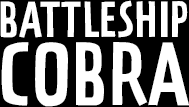School has often changed my life and no matter how hard I try to think it’s a useless process I have always been presented with new and amazing ideas.
Tonight in one of my final electives I discovered a new theory which I was not familiar with that has given me a whole new perspective. We learned about paradigms and while I understand the word and some connotations I didn’t fully grasp how powerful the concept is and how it really runs deep as a theme in my life.
Every thing you see, do, react to and to an extent think revolve around your paradigms. They are frameworks for taking in data, filtering information and making decisions. Paradigms help define the arena, define the rules and move us towards a set of solutions. BUT these paradigms or arena often hold us as captive as a locked arena door (or octagon cage if you are an MMA fan like myself). We play the game and learn the framework, we maximize within the rules but then the game shifts. To use another MMA reference, when jiu-jitsu came on the scene, nobody knew what an armbar was and thus it created a paradigm shift. This shift brought everyone “back to zero,” leveled the playing field.
At that point you either adapt or die. Becoming a paradigm pioneer means you learn what a guard is, how to defend an armbar, do a triangle, stack and pass, etc. But if you refuse this data; maybe you are a brawler who uses wild dangerous punches to knock out an opponent. You filter out this new data because it isn’t what has worked for you in the past. Some brawlers will learn to do an armbar and thus adapt their paradigm to the new framework, some won’t until it’s too late.
You often see these paradigm shifts coming from the fringes of a community, or perhaps completely outside of the community. What you have by working inside the paradigm is a framework that locks you into wild punches, but when Hiro Gracie decided to take his martial art and adapt it to work in an MMA setting, he was crating a tipping point. He came from outside and changed the game as it were.
It occurred to me that my whole life I have been concerned with paradigm shifts. I have always wanted to look at something in a weird or different way and come up with the best way to do something regardless of how it is being done now. I challenged people who taught me by trying everything the way I wanted to do it. I would use pieces of value from everything around me, connect patterns from unrelated disciplines and use plain innovation to redesign some ways of doing things I didn’t think made any sense.
My career is exactly that; I go into businesses who are in a paradigm and I shift their paradigm. I ask them ” what today is impossible to do, but if it could be done would fundamentally change you business?” I use these suggestions and frameworks from all different businesses and best practices and I make a shift for them. Or hopefully I do, some are so afraid to move out of the current paradigm that they get choked out by a simple rear naked choke (MMA fans will know what I’m talking about).
The way you have done things is never the way things should be done, ever. There is always adaptation. I’ve made my whole life about being flexible, doing things the best I can and adapting as I go. I am not afraid to throw out a concept and replace it if the efficiency gained outweighs the consistency.
I am excited to explore this new framework and use it to put some of my thoughts into a visual framework that I can literally piece together with some sort of modelling capability. Not just a description of my philosophy but a visual concrete and scientifically verifiable way of measuring my paradigm shift benefits.
Until then I will leave yo with the 6 points my teacher left us with:
1. Paradigms are everywhere, everything you think, do and see relates to your paradigm.
2. Paradigms are essential and very useful. They create the arena, the current issues and propose a solution to move towards.
3. Your paradigm can become THE PARADIGM. ie, if you are not careful you will literally and physiologically erase certain sets of data from your mind. Pieces of data that might suggest your paradigm is incorrect you will try to explain away as a distortions or you might simply ignore it or choose not to see it as significant, you can’t let this happen. Remember the armbar.
4. People creating paradigm shifts often come from the fringes of a community OR completely from the outside. Generally they are not invested in the OLD way of doing things so they don’t see any issues in turning things sideways.
5. “Paradigm Pioneers” or early adapters shift at early stages and often in defiance of the current situation. Quick adaptive methodologies such as these require faith and courage.
6. You choose. You are not encoded to have to see anything how others do. You can see the world anew if you simply take yourself out of the current framework and ask questions.
So I ask you. Take something you do all the time and live the moment. Now take the camera from your normal point of view and put it outside of your body and focus it on yourself. Keep playing out the scene. Does this make sense? Are there things you might change about it? Could you improve the process or communication?
Something to think about anyways. I know I will be giving it some thought.
